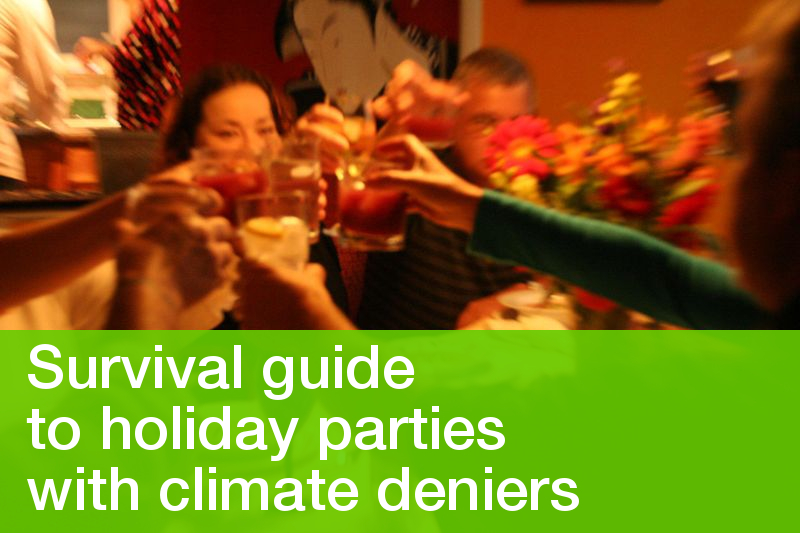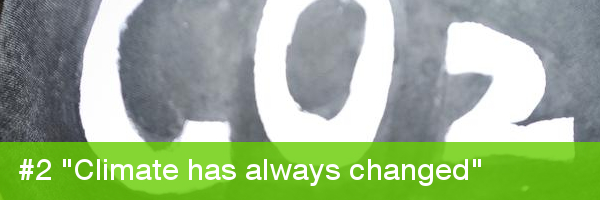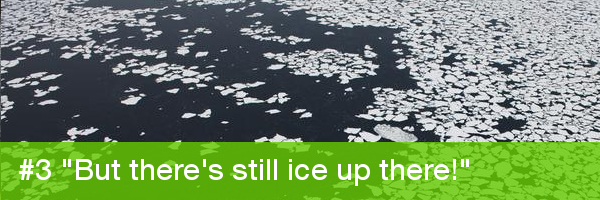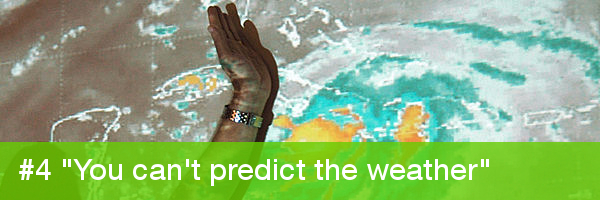Last year, UN general secretary Ban Ki-moon said it was time to “prove wrong” those who still have doubts about climate change at the climate talks in Doha.

Since it’s the festive season and you never know when you’ll wind up at the same holiday party as Donald Trump, we’ve answered Ban Ki-moon’s demand. Here are our tips for replies when you get hit with “it’s snowing in Israel and on the pyramids in Egypt” or “It’s extremely cold in NY and NJ, where is global warming?”
You’ve probably heard that one too many times to count. Global warming is just a hoax invented by environmental extremists and liberals who want strong regulations and big governments. But all major scientific institutions working on climate, ocean and atmosphere recognize that human CO2 emissions are the primary cause of climate warming. But what do scientists know?
Indeed, British Petroleum said that “There is an increasing consensus that climate change is linked to the consumption of carbon based fuels and that action is required now to avoid further increases in carbon emissions as the global demand for energy increases.”
Another one? Our favorite company Shell “shares the widespread concern that the emission of greenhouse gases from human activities is leading to changes in the global climate.”
Climate has always changed, this is a natural process and we can’t do anything about it. It is true, there are natural cycles with variations in global climate. But everyone agrees an increase of CO2 in the atmosphere will increase the greenhouse effect, and therefore warm the planet, right? And we’re producing more and more CO2.
So how do you explain that an increase of 35 percent in greenhouse gasses doesn’t warm the planet? This warming is happening quite rapidly, which is rare in the geological record. It may not be entirely unprecedented, but we’re sure of one thing: whenever it happened and whatever was the cause, it was catastrophic for the biosphere.
If the person you’re talking with doesn’t want to talk about CO2, greenhouse effect and geological times, she may try to deny the reality of climate change by challenging its impacts. These are common arguments: the glaciers are not melting, Antarctic ice is increasing, extreme weather events don’t have anything to do with global warming.
Let’s start with glaciers. There are rumors saying some glaciers are melting but most of them are growing. Well, that’s simply not true. Studies realized by the National Snow and Ice Data Center or the World Glacier Monitoring Service are clear. There is an accelerating rate of glacial mass loss.
Now, the Antarctic. Yes, it is generally increasing but surprise, it is totally consistent with climate models which predict an increase in CO2 emissions will have a larger effect in the north. But the real question is: finally, does it balance Arctic ice loss? Unfortunately, it doesn’t. Sea ice in the Arctic is reaching dramatic low records.
Now let’s talk about extreme weather disasters. Climate change is fueling natural disasters, which means it increases their frequency and their impacts. For instance, rising sea levels make coastal areas more vulnerable. The broadening consensus is: “Climate change amps up other basic factors that contribute to big storms. For example, the oceans have warmed, providing more energy for storms. And the Earth’s atmosphere has warmed, so it retains more moisture, which is drawn into storms and is then dumped on us.”, Mark Fischetti of Scientific American. So yes, global warming has a direct impact on natural disasters. Take that, drunk uncle.
You probably know someone who just won’t recognize the reality of climate change and is ready to throw you any curveball he or she can find. According to Fox News, global warming was so ’90s. Great news! We can add global warming to our pile of Friends DVDs and VH1. But where does that idea comes from? 1998 was a record high year, breaking the previous record (which was reached in 1997) by .2 degrees Celcius. If you use that year as a starting point, you can say that global temperature have been trending down since 1998. But this is what we call a cherry pick, my friends. You can’t extract meaningful information about trends from a single data point. And anyways, 2005 broke the 1998 record. Oh and 2012 was the warmest year yet.
Another example is the fact that scientists predicted global cooling in the 1970s, so why should we believe them now? Yes, there were scientists expecting an “imminent ice age”. A few articles were published, a book too, but no consensus, no United Nations treaties, no institutional announcements, no conference and no daily headlines. Today, we’re talking about a widespread scientific consensus: the earth is warming because of human activities.
But if we can’t even predict the weather, how can we talk about climate? Actually, weather and climate are not the same thing. Climate is the weather average over a period of time and one of the attributes of an average is that it smooths the random and unpredictable behavior of weather. While not easy to predict climate, you can’t use meteorologist’s failures to put in doubt a climate model’s 100-year projection.
And last but not least, you’ve managed to prove the reality of climate change to the person sitting next to you, and while you raise your glass to celebrate your sweet victory, that person looks at you and say: “But what’s so wrong with global warming?”
Indeed, the earth is already warmer, and maybe a warmer world doesn’t sound so bad? Ask the Norwegians, even Africa is starting to send them radiators to survive cold weather! Norway has been one of the most active countries on climate change and acknowledge the issue is not solely temperature. The nature, the humans, everyone and everything on this planet needs time to adapt, and the rate at which temperature is rising today is unique in the history of our species.
Congrats! You have won the battle with your local climate denier (until next year).
Worried about answering these arguments when you’re “on the go?” You can totally download Skeptical Science’s app for battling the biggest deniers this holiday season.






